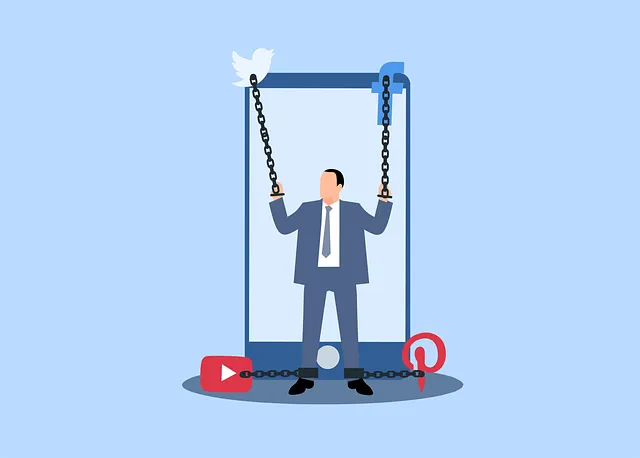The Kaiser Permanente Behavioral Health Center Littleton prioritizes cultural competency as a cornerstone for high-quality mental healthcare, addressing diverse patient backgrounds and needs. Through initiatives like Crisis Intervention Guidance, Empathy Building Strategies, and Stress Management Workshops, the center empowers staff to overcome biases and stereotypes, ensuring respectful, culturally sensitive care. Their comprehensive training program uses interactive scenarios, role-playing, and open dialogues to equip providers with practical conflict resolution skills for inclusive care. Community Outreach and Self-Care Routine Development further enhance cultural competency, improving communication, reducing barriers to care, and promoting positive health outcomes for a diverse patient population.
At the Kaiser Permanente Behavioral Health Center in Littleton, cultural competency training is a pressing need. This article explores how understanding cultural competencies can enhance patient care and reduce biases that often impact healthcare delivery. We delve into effective strategies for training healthcare providers, focusing on sensitivity to diverse cultures. Additionally, it highlights successful implementation and evaluation methods of cultural competency programs within the Kaiser Permanente Littleton context.
- Understanding Cultural Competency in Healthcare: A Need for Kaiser Permanente Behavioral Health Center Littleton
- The Impact of Cultural Biases and Stereotypes on Patient Care
- Effective Strategies for Training Healthcare Providers on Cultural Sensitivity
- Implementing and Evaluating Cultural Competency Programs at Kaiser Permanente Littleton
Understanding Cultural Competency in Healthcare: A Need for Kaiser Permanente Behavioral Health Center Littleton

Cultural competency is an essential aspect of providing quality healthcare services, especially in a diverse community like that served by Kaiser Permanente Behavioral Health Center Littleton. It involves understanding and respecting different cultural beliefs, values, and practices to deliver care that aligns with patients’ unique backgrounds and experiences. In the context of behavioral health, this means creating a safe and inclusive environment where individuals feel comfortable expressing their mental health concerns, which often require sensitive handling.
The need for such training is evident in addressing the growing demand for mental health services and ensuring effective communication between healthcare providers and diverse patient populations. Kaiser Permanente Behavioral Health Center Littleton’s commitment to cultural competency development can enhance patient satisfaction, improve treatment outcomes, and boost confidence among individuals seeking support for their mental well-being. Through comprehensive training programs designed to educate professionals on cultural nuances, the center aims to implement evidence-based practices that include effective mood management techniques tailored to various cultural contexts, thus enriching its Mental Health Education Programs Design.
The Impact of Cultural Biases and Stereotypes on Patient Care

Cultural biases and stereotypes can significantly impact patient care at healthcare providers like the Kaiser Permanente behavioral health center in Littleton. When healthcare professionals inadvertently let their own preconceived notions influence their interactions with patients, it can lead to miscommunication, mistrust, and even inadequate or inappropriate treatment. For instance, a provider’s assumption about a patient’s behavior based on their race, ethnicity, gender, or cultural background may prevent them from understanding the patient’s unique needs and preferences, hindering effective care delivery.
At the Kaiser Permanente behavioral health center in Littleton, recognizing these biases is crucial. They offer Crisis Intervention Guidance, Empathy Building Strategies, and Stress Management Workshops to help staff navigate these challenges. By equipping healthcare professionals with tools to recognize and mitigate their own biases, these initiatives foster a more inclusive environment where every patient receives care that respects their cultural identity and values.
Effective Strategies for Training Healthcare Providers on Cultural Sensitivity

Effective cultural competency training for healthcare providers involves a multi-faceted approach tailored to address the unique needs and challenges within diverse communities. At the Kaiser Permanente behavioral health center in Littleton, for instance, workshops often incorporate interactive scenarios and role-playing exercises to help medical professionals navigate complex cultural interactions with empathy and skill. By fostering open dialogues about implicit biases, microaggressions, and the impact of systemic barriers on mental health awareness, these sessions empower providers to offer more culturally sensitive care.
The training also emphasizes practical strategies for conflict resolution techniques, teaching healthcare staff how to de-escalate tensions during cultural misunderstandings. Additionally, incorporating emotional healing processes from various backgrounds can help providers better understand and support patients’ holistic well-being. Through a combination of educational content, interactive activities, and reflective practices, comprehensive training ensures that healthcare providers are equipped to deliver inclusive care that respects and values every patient’s unique cultural identity.
Implementing and Evaluating Cultural Competency Programs at Kaiser Permanente Littleton

At Kaiser Permanente Littleton Behavioral Health Center, implementing cultural competency programs is a strategic initiative to enhance patient care and foster an inclusive environment. The center recognizes that understanding diverse cultural backgrounds, beliefs, and values is essential in providing tailored mental health services. By prioritizing cultural competency, Kaiser Permanente aims to improve communication, reduce barriers to care, and promote positive health outcomes for all individuals served.
One notable program is their Community Outreach initiative, designed to engage with diverse communities and tailor interventions. This involves active participation in local events, collaborations with community organizations, and the development of educational resources that cater to various cultural contexts. Additionally, the center promotes Self-Care Routine Development as a tool for better mental health among staff and patients. This holistic approach encourages individuals to prioritize emotional intelligence, stress management, and self-awareness, ultimately contributing to enhanced cultural sensitivity and empathy within the healthcare setting. Through regular evaluations and feedback mechanisms, Kaiser Permanente Littleton continuously improves these programs, ensuring their effectiveness in meeting the unique needs of a diverse patient population.
Cultural competency training is a game-changer for healthcare providers, especially at Kaiser Permanente Behavioral Health Center Littleton. By understanding and addressing cultural biases and stereotypes, we can significantly improve patient care. Implementing effective strategies and evaluating programs ensures that the center provides culturally sensitive services tailored to diverse patient needs. This approach fosters better health outcomes and strengthens the connection between patients and their caregivers at Kaiser Permanente Littleton.






